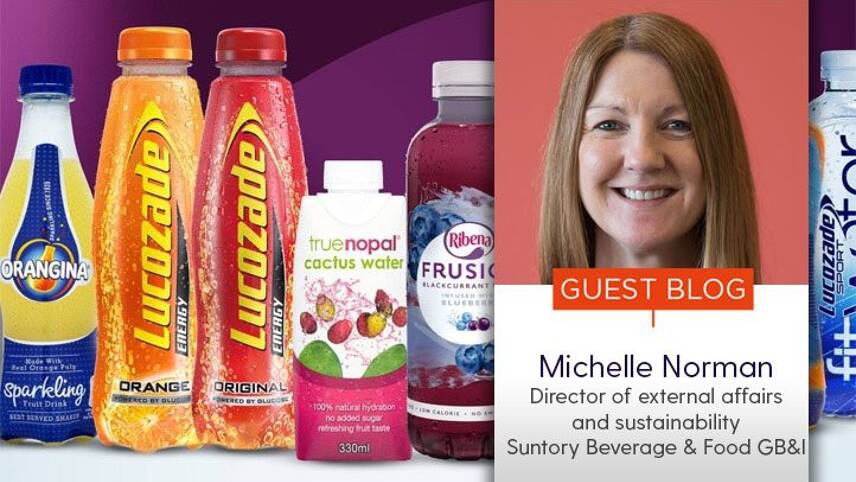Register for free and continue reading
Join our growing army of changemakers and get unlimited access to our premium content

A similar picture is being painted in Wales where, in an area with the highest recycling rates in the world, they have just reported a 3% reduction between April and June 2020 from the same period in 2019.
Despite the level of noise on the issues of plastic pollution, littering and waste, awareness doesn’t seem to be translating into behaviour change. The need for a genuinely circular economy is growing, but recycling rates are decreasing. What can be done?
Of course, everyone has some level of responsibility, but we believe that there are two main solutions. Manufacturers clearly have continued responsibility to make their products easily recyclable; and investment in the necessary collection and recycling infrastructure is also vital.
It is the responsibility of manufacturers to move away from virgin plastic, but also to make their packaging easily recyclable. Our £1.6m project to redesign Ribena bottles was part of this very objective, as we were able to reduce the size of the plastic sleeve around our bottle so that they can be sorted into the clear waste stream for bottle-to-bottle recycling at UK waste plants. This makes Ribena the UK’s largest soft drinks brand to use bottles made from 100% recycled material that are also 100% bottle-to-bottle recyclable, and we are already replicating this model across our major brands, Lucozade Energy and Lucozade Sport.
Manufacturers’ focus should be on making packaging items more easily recyclable as a first priority, but a side effect is often that this process reduces the total amount of plastic being used. Our change to Ribena saves 202 tonnes of plastic annually, contributing to the 3,149 tonnes we have already saved since 2015. This is an ambition we encourage all manufacturers to incorporate, along with rethinking other aspects of packaging and supply chains.
This is one side of the issue. The other is UK recycling infrastructure, which urgently needs investment and reform. We need the necessary collection and recycling infrastructure if we are to truly deliver a circular economy and boost recycling rates. Our experience is that there has been a historic under-investment in both, which is why we are supporting the current plans and resources and waste strategies coming from the devolved and Westminster governments. Extended Producer Responsibility (EPR) needs reform, and we have to ensure consistent household collections exist across all local authorities in the UK. Both of these changes will help to promote the collection and recycling of waste. They will also, in turn, boost the domestic availability of recycled material, helping manufacturers to use 100% recycled material to package their products.
As well as boosting domestic recycling, we must turn our attention to methods of ‘on the go’ recycling. Alongside the British Soft Drinks Association, we are calling for an ‘all in’ Deposit Return Scheme (DRS) to be enforced which will cover drinks packaging of all sizes and made from all materials. The alternative option, which the Westminster government has been consulting on this past month, would see the DRS system only apply to ‘on the go’ containers less than 750ml in size. We’re eagerly awaiting the government’s consultation that will announce which option will be adopted.
We see DRS as the long term solution to drive up recycling rates, which is why we became a founding member of Circularity Scotland Limited – a company bidding to be the administrator for Scotland’s DRS launching in July 2022 – with an ambition to increase collection rates to 90%. We see it as vital that there is one UK-wide DRS scheme to ensure consistency, minimise consumer confusion and maximise recycling and we hope that the schemes being planned will help society to reflect and review how we think of ‘waste’ and appreciate the inherent value locked within what some might consider ‘rubbish’.
We think some of the proposed schemes from the Government could go further to promote a circular economy. The Plastics Packaging Tax currently does not ring-fence the revenue it generates. Ring-fencing the revenue for the UK’s recycling infrastructure could kick-start investment that would boost recycling before EPR and DRS are fully implemented, enabling the necessary change to begin now.
For full circularity to be an achievable goal, manufacturers must play their part and there must be the infrastructure in place to support their changes. In 2021, UK households are expected to throw away more than 26m tonnes of rubbish, less than half of which will be recycled. We need to act now, all together, to deliver the circular economy we want and the environment needs.
Michelle Norman is director of external affairs and sustainability at Suntory Beverage & Food GB&I



Please login or Register to leave a comment.